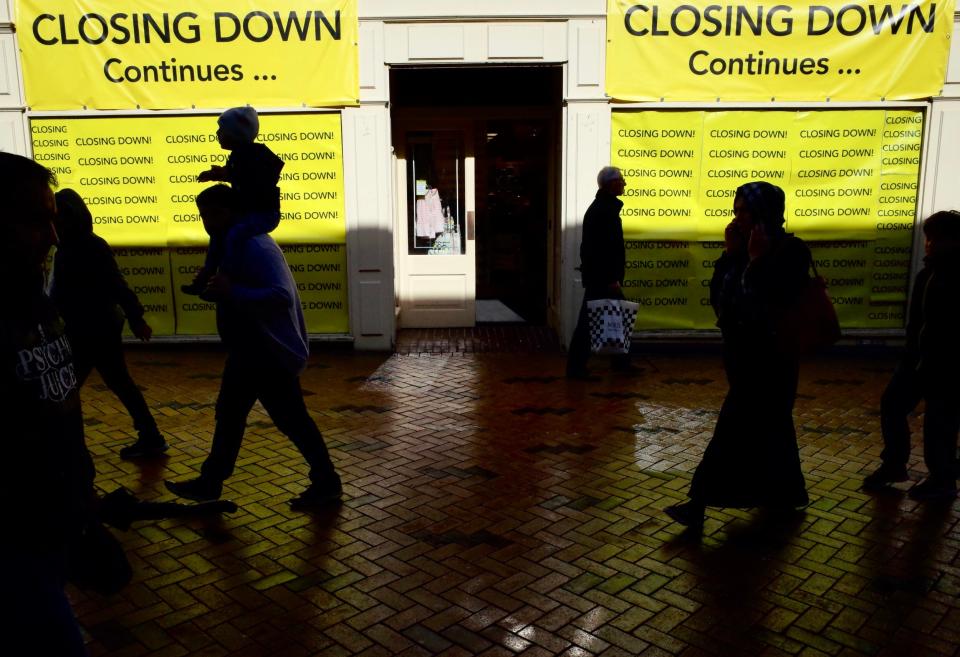Remaining in the EU would save the UK billions – money that should go to Brexit voters who were left behind
Theresa May said something wise when she pulled parliament’s “meaningful vote” on Brexit on Monday. This was that during the referendum “places that didn’t get a lot of attention at elections ... were making their voices heard and saying that they wanted things to change”.
The prime minister went on to say that parliament had to deliver for these people and that included “working across all areas – building a stronger economy, improving public services, tackling social injustices – to make this a country that truly works for everyone, a country where nowhere and nobody is left behind”.
There is no reason to suspect that May was being anything other than genuine. The snag is that, in two and a half years as prime minister, she has had no time to think about anything else but Brexit. What’s more, if we quit the EU next year, the backbiting and political wrangling will go on for years – and MPs will still have no time to address the needs of the “left-behind”.
As if that’s not bad enough, the economy will be harmed and there will be less money in the public purse to invest in communities that have been neglected for decades or our public services, such as the NHS. So although the prime minister’s heart is in the right place, her conclusion that we can only heal our country “if we get Brexit done and get it done right” is 180 degrees wrong.
The truth is that we will be much better able to bring our country together if we hold a people’s vote and then stay in the EU. MPs will then be able to focus on our deep-seated problems. The government will also have tens of billions of pounds extra each year to spend.
This is the thinking behind a report, called Tackling the Causes of Brexit, which is published this week by the campaign group Common Ground. The starting point is the analysis by the Institute for Fiscal Studies that the government’s deal will hit the public finances by 1.8 per cent of GDP in the long run when the damage to productivity is taken into account. In today’s money, that’s £36bn.
The government’s current spending plans are based on the assumption that its deal goes ahead. So there will be a multibillion-pound “dividend” if, instead, we stay in the EU.
To stimulate debate, the report, which I co-authored, proposes three specific ways of spending this dividend: a jumpstart fund for parts of the country that have been starved of investment; a cash infusion for the NHS, above and beyond what the prime minister has promised; and a migration and communities fund for areas which have been challenged by sudden or significant population changes.
The reason we chose these three ideas was that they address some of the key concerns that led many people to vote for Brexit in the first place. And although not everybody will agree with these priorities, there is a lot of common ground for such a programme.
A wide array of politicians have backed the key ideas, including: former Tory cabinet minister David Willetts; Labour politicians such as Andrew Adonis, Luciana Berger and Chuka Umunna; Lib Dem deputy leader Jo Swinson; the Green Party’s Caroline Lucas; and Plaid Cymru leader Adam Price. This suggests there could be the political will to take action if only we put Brexit behind us.
People, of course, didn’t vote for Brexit just because their communities had been left behind – and money alone isn’t the solution to every problem. But the lack of investment was certainly one factor in the Brexit vote and money is part of the answer.
What’s more, a programme to heal our divided country would help answer the concern that a public vote on the deal will tear the country apart. One of the main errors made by David Cameron in the referendum was to rely solely on “project fear”.
While there certainly is a lot to fear about Brexit, that was not good enough. If we get a final say, we also need “project hope” to show people who find the status quo unacceptable that things can change for the better. If their legitimate concerns are tackled, a new vote could be part of the healing process.
Hugo Dixon is co-founder of Common Ground and deputy chair of People’s Vote

 Yahoo News
Yahoo News 

